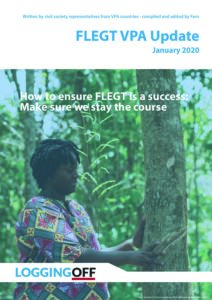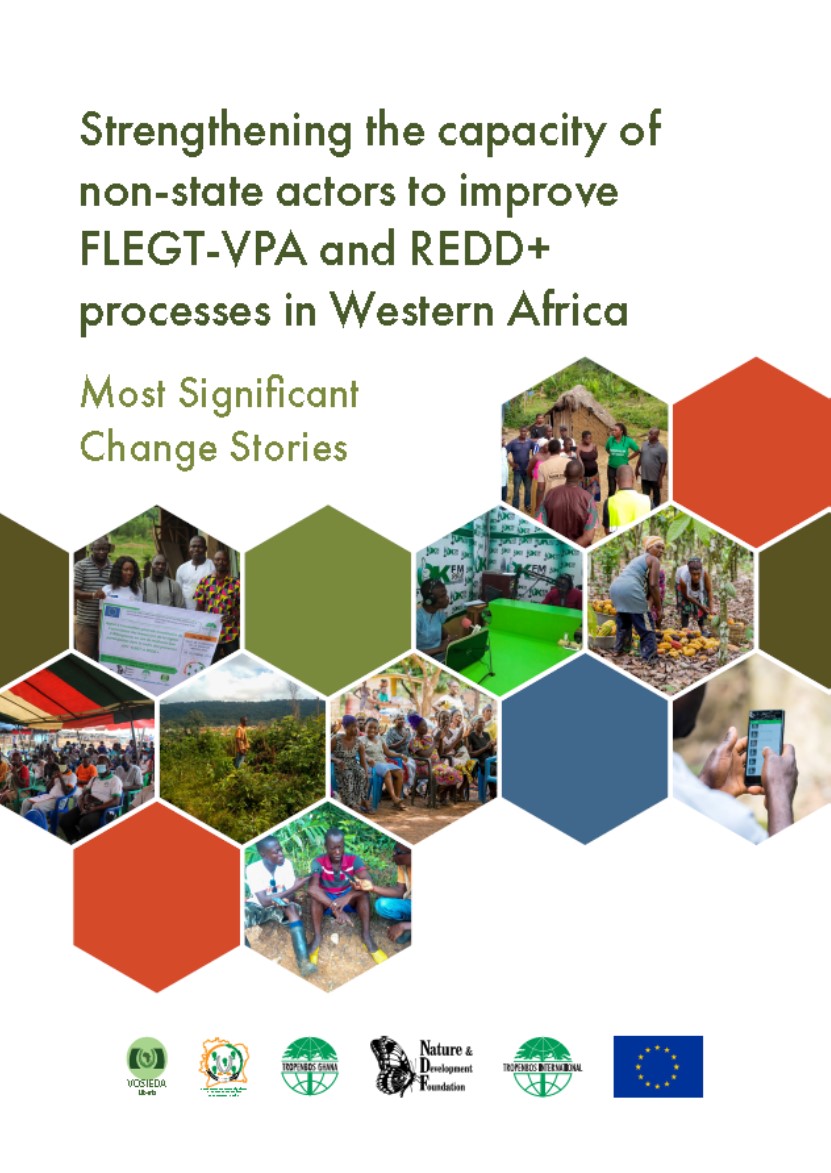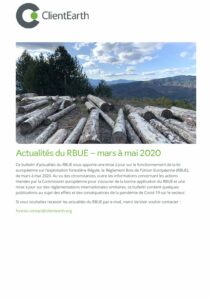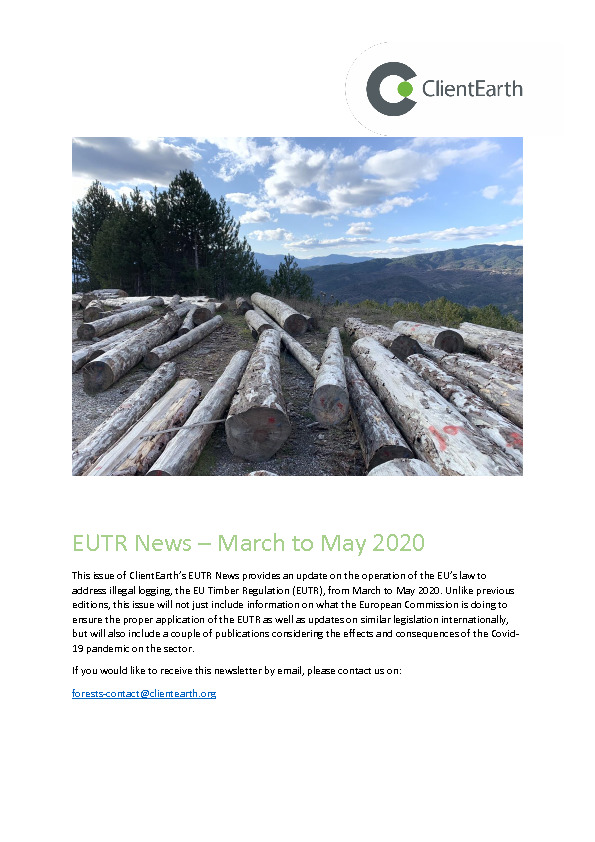Ivory Coast
Cote d’Ivoire began negotiating a VPA in 2013. A civil society platform was slow to establish but is now working towards having a real influence on forest reforms connected to the process.
Forests cover 22% of the land area of Côte d’Ivoire, but only 2% of the country is covered by primary forest. Most of the country’s forests – once the largest in western Africa – have been heavily logged. The forest cover has shrunk from 12 million hectares in 1960 to 2.5 million hectares today. Forests contribute to the national economy, and an estimated 150 000 cubic metres of timber is exported each year.
VPA update:
Movement on a variety of issues surrounding the FLEGT VPA process has occurred since it was relaunched in early 2019.
A roadmap has been drawn up between the Government of Côte d’Ivoire and the EU, establishing a deadline for signing a FLEGT VPA in 2022. Members of the Technical Negotiating Committee (CTN) participated in its creation, including civil society, traditional chieftains and the private sector; a final version should be officially adopted in December 2019.
A 10 December 2019 presentation by the Ministry of Water and Forests (Ministère des Eaux et Forêts, MINEF) identified as “acquired” important aspects of the VPA, such as improved stakeholder engagement and clarity of the law through participative legal reform; improved transparency through online procedures and information about the timber sector, and through Independent Observers; proposed reforms to the public procurement of legal timber; and the proposal of a national traceability system. The definition of legality is now underway, as is the Legality assurance system (LAS).
Advances such as these and the conclusion of a National Programme to Improve Forest Governance (Programme National d’Amélioration de la Gouvernance Forestière: PNAGF) are extremely important, but the bedrock on which FLEGT rests nonetheless gives cause for concern. Following the adoption of the new Forest Code in June 2019, current efforts are concentrated on elaborating the approximately 30 application decrees and administrative orders required to flesh out the Code’s provisions.
Among these decrees, one that was rapidly drawn up and signed concerns the possibility of creating agro-forests in order to rehabilitate them: the vision of MINEF is that, in classing these degraded forests as agro-forests, only 20 per cent would be available for cultivation; the remaining 80 per cent would be set aside for restoration. For now, creating agro-forests remains only a possibility. None has been created so far. Four other agro-forestry decrees are now being elaborated.
Tensions may well arise when it comes to practical application of agro-forestry rules. These are not empty forests, of course, but rather forests inhabited by small producers. The rules foresee granting concessions to large companies, but no protections for the communities residing there have been placed in the legal framework thus far.
With regards to all the application decrees, stakeholder comments are being gathered, for example, through a workshop with PTF Forêt-Environnement de Côte d’Ivoire, a civil society environmental platform. Two meetings were held, presided over by the minister of forests. Technically speaking, stakeholders are participating in the elaboration of these texts; their comments are not always considered.
Even here, considerable problems remain. The calendar is so tight that it prevents adequate research and the gathering of views on the ground. Also, meetings are held in Abidjan, and while civil society does its best to represent concerns from further afield, the fact remains that those communities are not being consulted. Distant NGOs cannot adequately capture and relay their fears. No mission has been sent out to the communities, nor is there an express prohibition on dispossessing the populations currently residing in the forests. Civil society is concerned that the populations will be harmed in the face of large commercial interests. A great deal will depend on the Land Use Plan (Plan d’aménagement du territoire), which is the subject of an administrative decree.
The situation is not more secure regarding land tenure reform. A law passed in 1998 provided the possibility to register traditional lands within 10 years’ time. After its expiry, this period was extended through 2023. Although provisions to extend it further were recently relaxed to be more permissive, there is little likelihood that communities will be able take advantage of the opportunity to register legal land titles.
Here, time is not the problem: cost is. In the past two decades, only 2 per cent of traditional titles have been registered; the exorbitant cost to the communities of officially recording their land in effect excludes them from the process. Without government help – which is not forthcoming – or financial and legal assistance from international institutions, recognition of traditional land tenure has every chance of remaining a dead letter, and the possibility of eventual dispossession, a real threat.
As for accountability, the new Forest Code foresees stricter penalties, ranging from fines to imprisonment. Where imprisonment is provided, however, typically the possibility to carry out a ‘transaction’ – an amiable solution with the government – generally exists: a sum going beyond the fine is paid in addition in order to avoid jail time. Note that this is not corruption; it is provided for in the Code and is not available for the most serious crimes (Art. 81). Civil society, in the event of a transaction, is not informed of the amount, and therefore cannot assess whether these are truly dissuasive.
The question of practical application of the Code’s provisions is difficult to assess without adequate information from the ground. The Wild Chimpanzee Foundation NGO acts as an Independent Observer in the FLEGT process regarding forest protection, particularly in protected forests of the Taï national park. In its independent observer reports, it has noted various problems, but the government says they are willing to remedy them. Apart from this, little is known about implementation of forest regulation.
Given the uncertainties in the overall framework, civil society is hesitant to express either fear or optimism about the FLEGT process but is waiting for the development of the first annexes relating to the Legality Assurance System.
Last updated in January 2020.
Share this page on social media:






